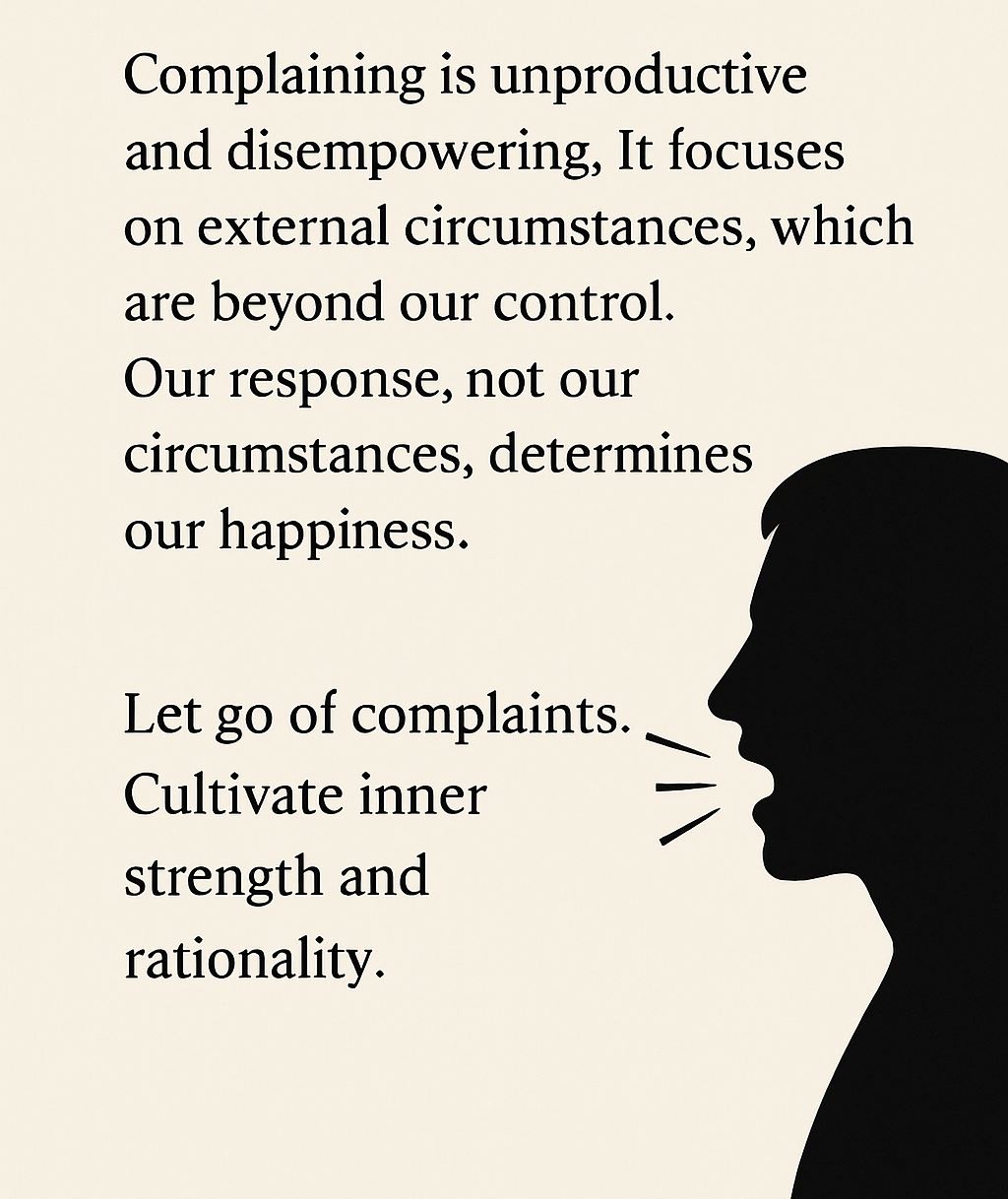“Don’t explain your philosophy. Embody it.” – Epictetus
Let’s be honest—we all complain. About traffic, bosses, weather, partners, or even ourselves. It feels good for a moment. But if we’re not careful, complaining becomes a habit that quietly drains our power.
Now, what if there was a way to break free from that cycle?
The Stoics—a group of ancient thinkers like Marcus Aurelius, Seneca, and Epictetus—offer a powerful lens through which to view life. And when it comes to complaining, their advice is clear:
Complaining doesn’t solve problems. It weakens your spirit.
Let’s explore why—and what to do instead.
The Stoic Shift: From Complaining to Control
Stoicism teaches that life is divided into two categories:
- What you can control: Your thoughts, beliefs, values, and actions.
- What you can’t control: Other people’s opinions, traffic jams, job layoffs, the weather.
Complaining usually focuses on the second category—things you can’t change. And that’s the trap. When you complain about what you can’t control, you give away your energy and reinforce the belief that you’re powerless.
Instead, the Stoics invite you to ask:
“What part of this is up to me?”
“How can I respond wisely right now?”
That’s where your power is.
Why Complaining Is a Mental Habit Worth Breaking
1. It Builds a Wall of Victimhood
Every complaint is a small story that says, “This shouldn’t be happening.” But Stoics believe that life isn’t what happens to you—it’s how you respond. Complaining keeps you in reaction mode. Stoicism moves you into responsibility mode.
2. It Clouds Your Thinking
Complaints are often emotional noise. The more you focus on the unfairness or frustration, the harder it becomes to think clearly. Stoics prefer a quiet mind—one that sees things as they are, not as distorted by emotion.
3. It Disturbs Your Inner Peace
One of the highest Stoic goals is tranquility—a calm mind, untouched by the chaos around you. Every complaint disrupts that peace. By letting go of the need to voice your dissatisfaction, you make space for serenity.
Reframing the Moment: What Would a Stoic Do?
Instead of:
“This isn’t fair!”
Try:
“This is a chance to practice patience.”
Instead of:
“Why do I have to deal with this again?”
Try:
“This is training for the person I want to become.”
Instead of:
“I can’t believe they said that.”
Try:
“Their actions are not under my control. My response is.”
These mental shifts aren’t just feel-good mantras. They’re deliberate acts of self-leadership.
The Hidden Power of Not Complaining
When you stop complaining, you don’t become passive—you become intentional. You stop leaking energy and start focusing on actions that matter.
You become:
- More resilient in tough times
- More peaceful in daily life
- More influential because people trust calm, grounded individuals
You don’t need to be perfect. You just need to practice.
Catch yourself. Pause. Reframe.
That’s Stoicism in action.
Final Thought: Choose Power Over Pity
The next time you feel like complaining, treat it as a moment of self-awareness. You can either indulge the discomfort… or transcend it.
“You have power over your mind—not outside events. Realize this, and you will find strength.” – Marcus Aurelius
Choose to be stronger than the situation. Choose clarity over chaos. Choose action over complaint.
Start today.
Challenge yourself to go 24 hours without complaining.
Each time you catch yourself about to complain, pause—and ask:
“What’s within my control right now?”
That one shift can change your day. Over time, it can change your life.

